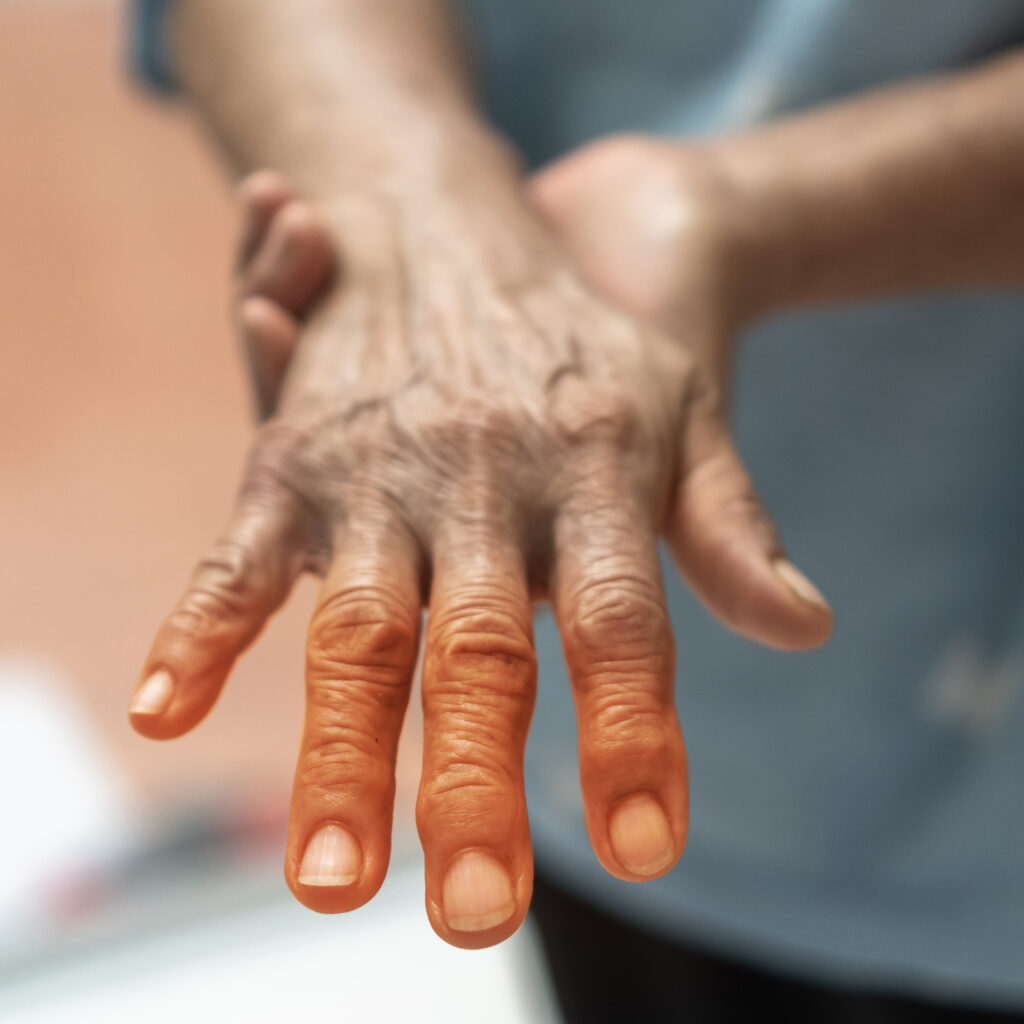WHAT CAUSES PERIPHERAL NEUROPATHY
The most common causes of peripheral neuropathy are;
- Diabetes : Diabetes can cause peripheral neuropathy by damaging the small blood vessels that supply nutrients and oxygen to nerves. Elevated levels of glucose in the blood can lead to nerve damage over time, resulting in symptoms such as tingling, numbness, and pain in the extremities. Poorly managed diabetes can exacerbate this process, increasing the risk and severity of peripheral neuropathy.
- Peripheral neuropathy may result from blood flow and circulation issues: Blood flow and circulation issues can cause peripheral neuropathy by reducing the delivery of oxygen and nutrients to peripheral nerves. When blood vessels supplying nerves become narrowed or damaged, it impairs their ability to function properly. The resulting insufficient oxygen and nutrient supply can lead to nerve damage and the development of peripheral neuropathy, often accompanied by symptoms like tingling, numbness, and pain in the affected areas.
- Chemotherapy drugs used to treat cancer: Chemotherapy can cause peripheral neuropathy by damaging the peripheral nerves that transmit signals between the central nervous system and the rest of the body. The specific mechanisms are not fully understood, but chemotherapy drugs may disrupt nerve cell function and affect the myelin sheath that protects nerves. This damage can lead to symptoms such as numbness, tingling, and pain in the hands and feet, and the severity of neuropathy can vary depending on the type and dosage of chemotherapy drugs used.
- Idiopathic Neuropathy: Idiopathic neuropathy refers to a type of peripheral neuropathy where the exact cause is unknown. It typically occurs when peripheral nerves become damaged or dysfunctional without a clear underlying medical condition or external factor to explain the nerve damage. While the precise mechanisms are unclear, idiopathic neuropathy is believed to result from a combination of genetic factors, autoimmune responses, and metabolic imbalances.
- Infections: Infections can cause peripheral neuropathy by directly damaging nerves or triggering an immune response that affects nerve function. Certain infections, such as Lyme disease, HIV, and hepatitis C, are known to be associated with peripheral neuropathy as a complication. Infections can lead to inflammation, nerve cell damage, or the production of toxins that harm peripheral nerves, resulting in symptoms like numbness, pain, and weakness in the affected areas.
- Inherited Disorders: Inherited disorders can cause peripheral neuropathy when there are genetic mutations that affect the structure or function of nerves. These mutations can lead to abnormalities in the myelin sheath of axons, disrupting the transmission of nerve signals. Conditions like Charcot-Marie-Tooth disease and hereditary sensory and autonomic neuropathy are examples of inherited disorders that can result in peripheral neuropathy, often with symptoms such as muscle weakness, sensory disturbances, and impaired reflexes. The specific genetic mutations involved can vary depending on the disorder.
SYMPTOMS OF PERIPHERAL NEUROPATHY
Common symptoms of neuropathy include;
- Numbness, tingling, or pain in the hands and feet.
- Burning pain, usually described as a constant dull ache.
- Sensitivity to touch, pain, pressure, heat or cold.
- Poor balance
- Diculty holding or manoeuvring objects.
STAGES OF PERIPHERAL NEUROPATHY
Peripheral neuropathy has the tendency to deteriorate with time, just like many other medical disorders. It is not always simple to determine the extent of the harm, though. Neuropathy progresses through several stages, none of which are always obvious.
Stage 1: Numbness and Pain
In the early stages of neuropathy, you will experience pain and numbness. These symptoms may not last long, but they will pass. These early signs of discomfort and numbness may be minor, but they are noticeable. You may experience tingling or numbness in your hands and feet, but this will pass. Another early indicator of neuropathy is noticing that your balance and reflexes are o. The early symptoms frequently recur and become more persistent over time. People frequently disregard the early indicators of neuropathy because they are so subtle.
Stage 2: Regular and Persistent Symptoms
The second stage of peripheral neuropathy occurs when your pain and numbness become more regular and consistent. It is difficult to pinpoint exactly when a patient’s
neuropathy progresses into the second stage, but it will become obvious when the pain and numbness is felt more often than in the past. In the second stage, it becomes more difficult to ignore the pains, numbness, and other symptoms that are present.
Stage 3: Debilitating Pain
In the third stage of neuropathy, your pain is occurring daily, or almost every day. In this stage, the pain begins to affect your daily activities, and prevents you from going about your day as you would normally. At this point, it becomes difficult to treat.
Stage 4: Constant Numbness
In the fourth stage of neuropathy, your legs and feet will become very numb. You may notice an increase in numbness and a decrease in your pain, but this is not a good thing. When this happens, it is a sign that the nerves are dying and a good majority of the nerve fibres have disintegrated. In this stage, it is likely that your balance is affected, and it may become difficult to walk and keep your balance.
Stage 5: Complete Loss of Feeling
This is the final stage of neuropathy, and it is where you’ve lost any and all feeling in your lower legs and feet. You do not feel any pain, just intense numbness. At this stage, walking has become very difficult, and your balance is severely affected. You may become so unsteady that you have to use a wheelchair. It is not always simple to determine the extent of the harm, though. Neuropathy progresses through several stages, none of which are always obvious.


